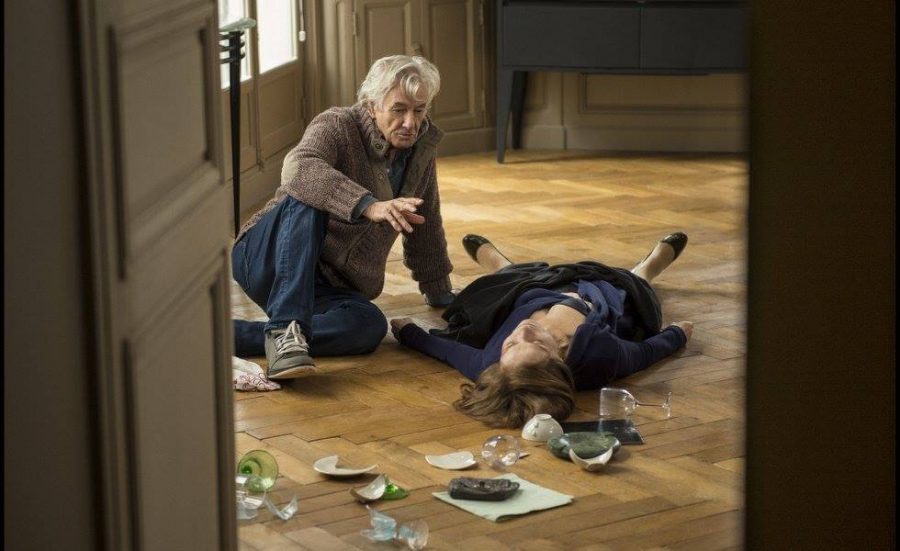NYFF Week 4: Toiling Along
Paul Verhoeven boldly explores the complexities of sexual violence and its consequences in “Elle,” which screened in the fourth and final week of the New York Film Festival.
October 19, 2016
In the final week of this year’s New York Film Festival, the content all finished with undeniable talent.
“20th Century Women,” the new film by writer-director Mike Mills, is less focused on its namesake than it might like viewers to believe. Set in 1979 Santa Barbara, California, it follows the shifting dynamics between teenager Jamie (Lucas Jade Zumann) and his bohemian mother Dorothea (Annette Bening), as well as the cultural, social and political changes of the time. The film is more concerned with the development of Jamie’s discovery of punk and feminism than much else.
Such a development should be unsurprising given Mills’ tendency to draw from his own life for his work, which is not a particular detriment. Zumann portrays Jamie as a thoughtful, discontented kid on the precipice of adulthood, trying to be a good son to his mother, express his love for the older, happily platonic Julie (Elle Fanning) and somehow fit in amongst forming social groups. The story falters slightly, all too casually flowing in and out of characters and foregoing a three-act structure. Still, it does carry a great deal of insight into familial dynamics, the difficulties of motherhood and, most of all, the ways in which finding one’s place in the world is a constant experience.
Paul Verhoeven’s “Elle” gets right to the point: over a black screen, male grunts and female cries are heard. Not long after, the camera reveals a man in all black standing over Michele (Isabelle Huppert), who lies slightly comatose after just having been sexually assaulted. While many would expect a traditional revenge narrative to follow, Verhoeven instead decides to dive into the perverse sexual and selfish desires of people, in particular Michele, who hungers for power in every relationship — including the one with the unknown yet lurking rapist.
Such a bold choice in story — adapted from the novel “Oh…” by Philippe Dijan — is likely to leave many viewers disturbed and outraged, but Verhoeven’s commitment to showing the full brutality of sexual violence as well as Huppert’s intensely complex portrayal of a sadomasochistic, grief-stricken woman prevents any real moral pitfalls.
Huppert’s work is worthy of praise, as the role in lesser hands could too easily lead to melodrama, a belittling of sexual violence or a flatter representation of a highly layered character. What we get instead is an exploration of power dynamics and Huppert’s relentless fervor to gain control against all odds.
Closing the festival this year was James Gray’s “The Lost City of Z,” which follows the unyielding exploits of Percy Fawcett (Charlie Hunnam), a British Colonel and explorer who became obsessed with finding a supposed ancient city in the Amazon in the early 1900s. Gray may very well be the best visual filmmaker working today, with an innate understanding of placement, lighting and framing akin to a painter. “Z” flourishes with one beautiful image after the other, from deep rainforest settlements to quaint English countryside homes.
Nevertheless, Gray may also have the worst understanding of dialogue and pace of any filmmaker working today, penning stories that move at a sluggish pace with writing that sounds somehow either broken or overly formalized. While the visuals of “The Lost City of Z” are certainly striking, it’s hard to fully appreciate them when viewers’ eyes are likely to flutter shut.
Email Ethan Sapienza at [email protected].


























































































































































